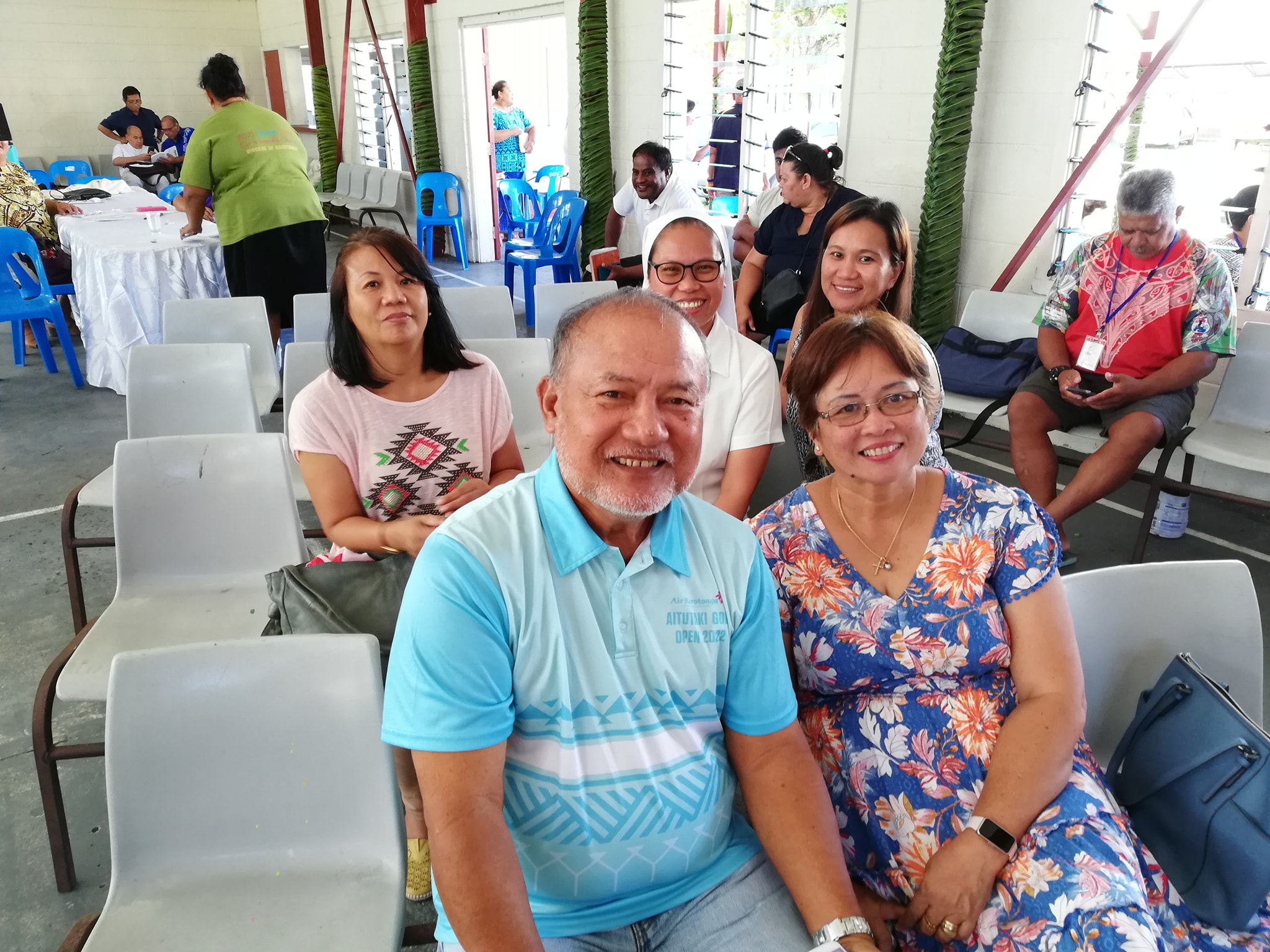Filipino community welcomes changes to immigration policy
Friday 2 February 2024 | Written by Losirene Lacanivalu | Published in Economy, National

Filipino community leader Grace Scheel, right, with other members. FilCom Cook Islands/24020123
The Rarotonga Filipino community has welcomed the recent change in immigration policy allowing foreign workers to have a secondary job.
Secondary employment is one of the eight immigration policy changes that has been approved by the Cabinet last week.
The other changes include waive any fees for 12 months on conditions for additional employment, enable applications for a one year International and Government visa and permit at a cost of $320 per application, no fees on any visitor class visa or permit extension that is 62 days or less, and enabling the continuation of a renewal fee of $60 per annum for a Resident Spouse visa and permit.
The Cabinet also approved a new one-year retiree visa and permit, the removal of mandatory breaks and limitations on permit renewals from the criteria (including the requirement to leave the Cooks for 1 month after 3 years of employment or 1 year after 6 years of employment), and a regulatory amendment to enable Australian passport holders to obtain a 90-day visitor visa and permit on arrival.
Also read:
> Chamber of Commerce and Tourism welcome immigration policy changes
> Cabinet approves eight Immigration policy changes
Filipino community leader Grace Scheel welcomes the news, highlighting the potential benefits for workers.
However, she raises concerns regarding employer responsibility in cases of accidents or medical emergencies during secondary employment.
“What if there is an accident during the time on the second job? Will they be responsible for the health bills or in a worst scenario if the worker needs to be repatriated for further medication? Will the secondary employer be willing to pay or shoulder the expense?”
Eve Hayden, vice chair of the Chamber of Commerce, has previously emphasised the importance of a clear process for secondary employment.
Hayden acknowledged the Cook Islands’ reliance on international workers, especially post-pandemic, and highlighted the potential of secondary employment to fill existing gaps.
She expressed concerns about workers paying double taxes and the difficulty of obtaining permits, noting that some workers already engage in informal secondary employment.
Scheel agrees that secondary employment benefits both workers and employers.










































